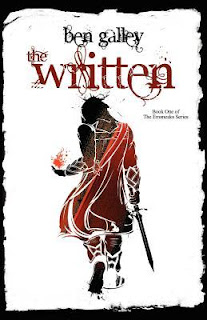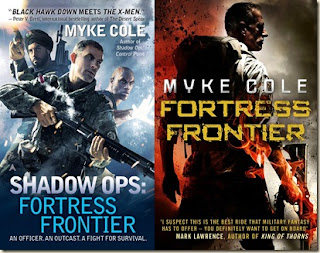The New Empire intends
to celebrate its victory over the Nationalists with a day that will never be
forgotten. On the high holiday of Wintertide, they plan to execute two traitors
(Degan Gaunt and the Witch of Melengar) as well as force the Empress into a marriage
of their own design. But they didn’t account for Royce and Hadrian finally
locating the Heir of Novron—or the pair’s desire to wreak havoc on the New
Empire’s carefully crafted scheme.
Heir of Novron is
the final part in Michael J. Sullivan’s Riyria
Revelations. It is an omnibus consisting of the final two books in the
series, Wintertide and Percipliquis. Wintertide is in many ways the climax and conclusion to many of the
series’ main plotlines. Answers start to come thick and fast, amid twists and
turns which are liable to give you whiplash.
For the most part, Wintertide is a book focused on Hadrian, with Royce and particularly Arista taking a
backseat to a lot of the action. We get to see Hadrian in some really
entertaining scenes. Wintertide is
Sullivan’s biggest Riyria book yet (until Percipliquis)
– it’s packed with action, tension, revelations and a lot of darkness. But
cutting through this is the humour. It’s not overdone, but I’d say this is the
funniest book in the series, as well as being the tension filled climax it
needs to be.
Percipliquis, on
the other hand, is as dark and twisted as you’re likely to ever see Sullivan
become. It’s a difficult book to review without spoilers, as most of what
happens is related to the overall mythology of the world which Sullivan has
layered in since the start of Book One. If Wintertide
ties up the plots of books three and four, Percipliquis
harps back to Theft of Swords and the
history of Elan. It’s not clear until you reach this point how Sullivan has
lined up his pieces, all ready to come together for this final book. Royce and
Hadrian are very much at the centre of the novel, but this time they are not
alone. Nobody is left hanging in Percipliquis
– everyone has their part to play. It’s a huge book, but the pages move ten
times quicker.
Sullivan answers everything and ties up the series with an
amazingly tight ending. There are moments of joy, sadness and even Myron the
monk gets his moment to shine. More so than any of the other books in the
series, Percipliquis is like classic
fantasy – a quest novel with elves and dwarves, wizards and dragons (kinda).
But don’t let that stop you – the difference here is that behind everything is
a rich tapestry of worldbuilding, careful plotting and characterisation that
Sullivan has been careful to line up throughout the series, meaning no matter
how clichéd it may look on the outside, there is always a shock coming round to
smack you in the face.
Heir of Novron is
that rare beast in fantasy: a great ending
to a six book fantasy epic. It’s an ending that feels well justified and foreshadowed
to near perfection. Royce and Hadrian have come a long way together, and this
is the ending they deserve. A fantastic conclusion to one of the most
entertaining fantasy series in recent memory.
If you want a deep, engrossing read
that’s nothing but entertaining at every step, please give the Riyria Revelations a go. It’s the story
of two thieves who become embroiled in an epic story to save the world. What more
could a fantasy fan want?








